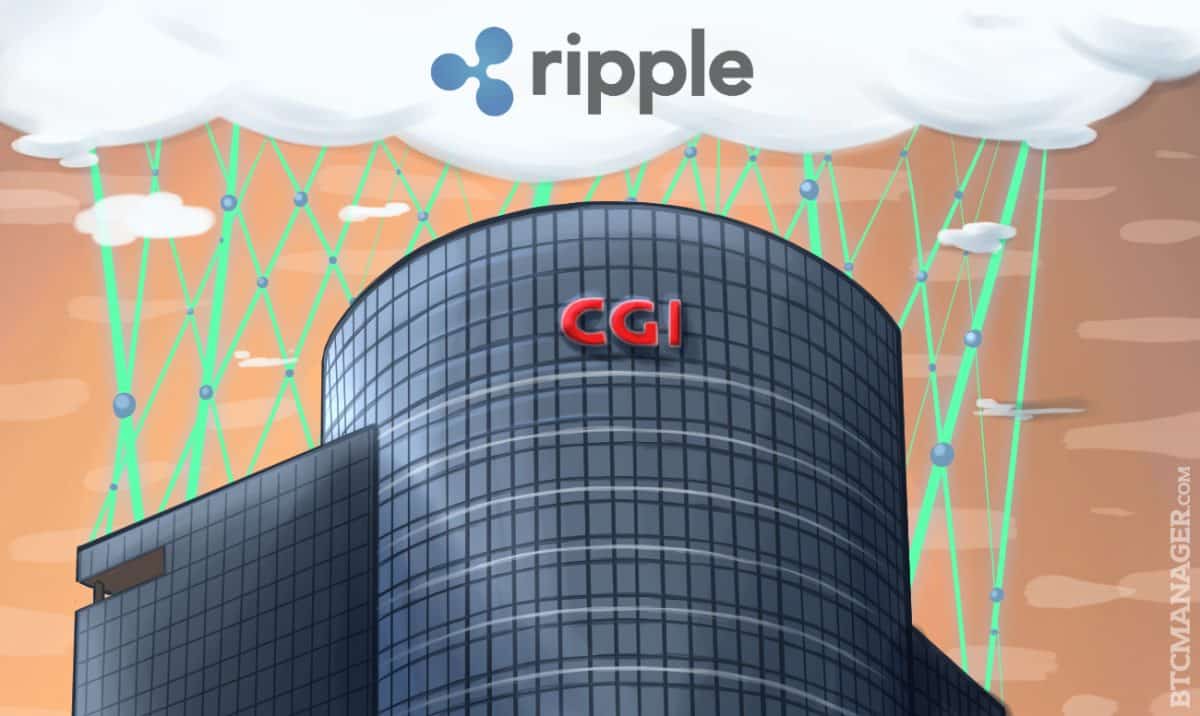Leading Canadian IT Firm CGI Integrates Ripple’s Distributed Financial Tech

CGI Group Inc. has integrated Ripple’s distributed financial technology into its payments solutions to deliver instant settlement of international banking transactions. CGI is a Canadian IT leader and the fifth largest independent IT and business process services firm in the world.
CGI announced its plans to integrate Ripple’s technology into its payments solutions portfolio last year, signing an agreement in October 2015.
By integrating blockchain technology into its payments solutions, CGI hopes to stay at the forefront of payments modernization and innovation.
Jeff Miller, vice-president of CGI’s Financial Solutions Group, said that the integration “is the first of more to come in our efforts to deliver practical innovation to clients.”
“We expect distributed financial technologies to continue to mature and add value to solutions beyond our payments portfolio including trade and collections,” Miller said in statements. “Enabling our financial services clients to benefit from innovation such as distributed financial technology is important to CGI.”
The integration will allow clients to benefit from many of the advantages of blockchain-enabled payment solutions including greater cost-efficiency, agility, end-to-end tracking of payments, and speed to market.
Clients using CGI’s Ripple-enabled Intelligent Gateway, can use their existing payments hug to access new protocols and services and connect with multiple payment networks and clearing channels, including the Ripple network.
This makes CGI’s Intelligent Gateway one of the first payments solutions in the industry to integrate with Ripple’s distributed payments infrastructure.
“Today, payments are complicated by a lack of interoperability between networks,” Ripple wrote in a blog post announcing the successful integration.
Today, settling cross-border transactions is a slow, costly, opaque and difficult process in many corridors, and distributed ledger technology can solve this complex set of problems by connecting and interoperating with the world’s payment networks, enabling the movement of value the same way that the Internet moves information today.
“We’re excited for this next chapter in banking, which we think gives way to an Internet of Value in which value will move like information moves on the web today,” Chris Larsen, CEO and co-founder of Ripple, said.
An increasing number of banks and financial services firms have turned to Ripple in hopes to streamline payments processes and stay at the forefront of innovation.
Ripple, which was named in 2015 one of the World Economic Forum’s “Technology Pioneers,” has signed deals with the likes of Japan’s SBI Holdings, UK-based payment network Earthport, and Accenture.
As of late 2015, the company had succeeded in integrating its technology to 25 banks across 15 countries. Ten of the world’s top 50 banks are reportedly working with Ripple.
The Massachusetts Institute of Technology’s (MIT) Connection Science, a research initiative that applies data and analytics to build better societies, is currently running a validator for the Ripple Consensus Ledger.
Led by professor Alex “Sandy” Pentland and MIT Connection Science’s managing director David Shrier, the project is aimed at advancing “the frontier of blockchain research.”














